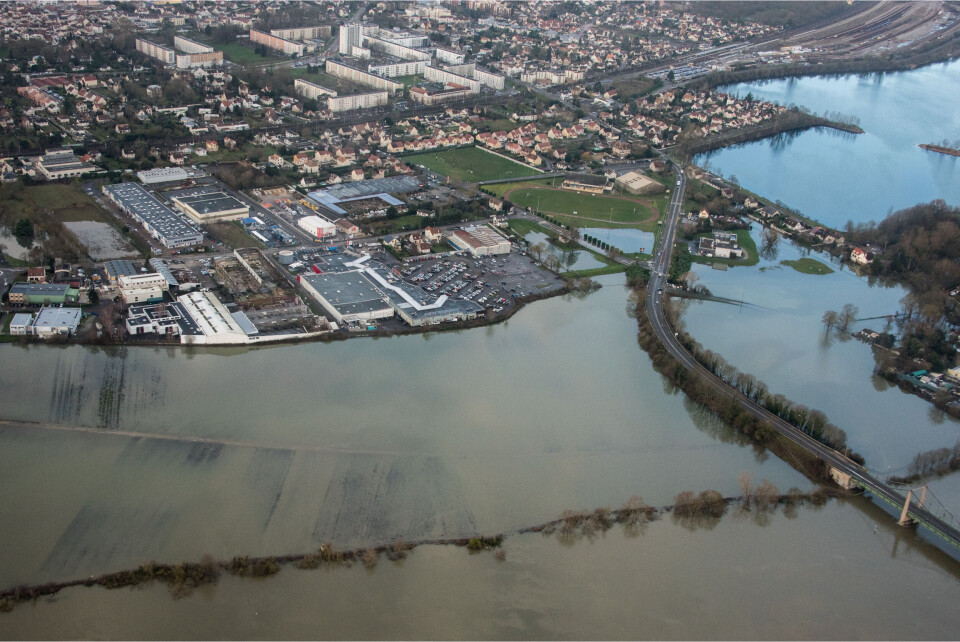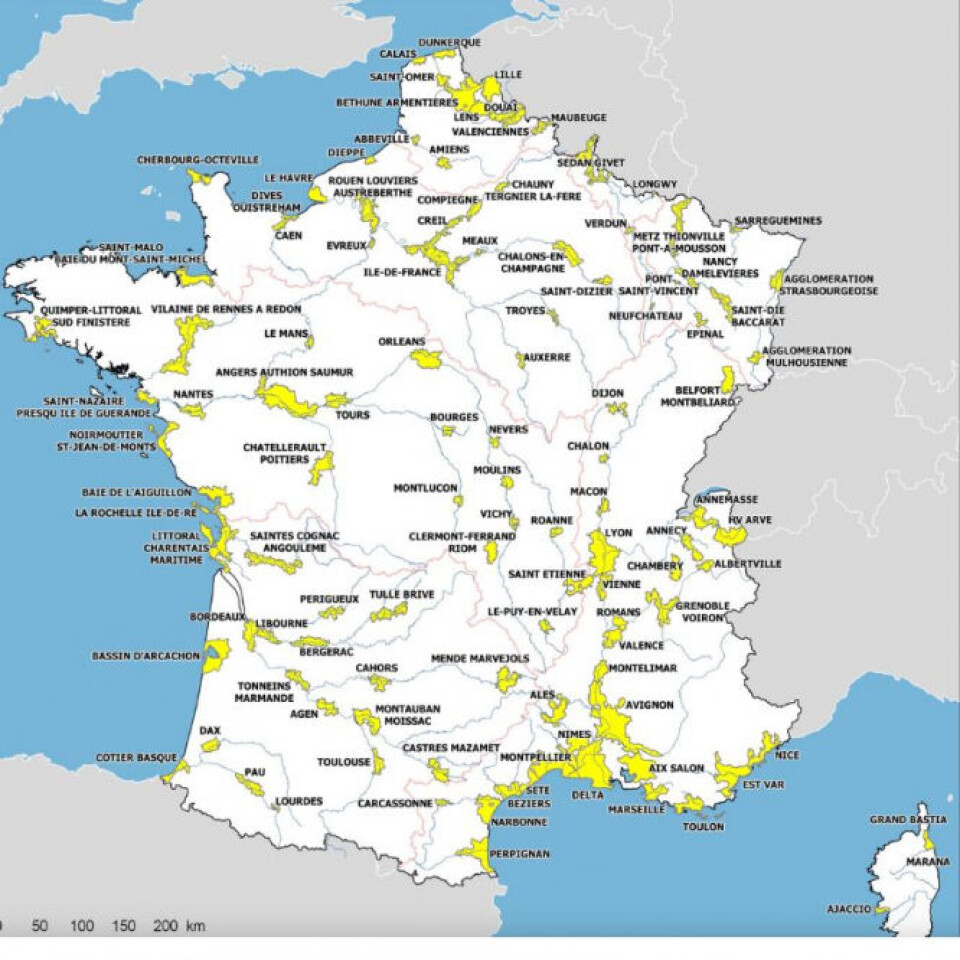-
How much is second home insurance in France?
There is no legal obligation to insure a second home if it is a fully independent property
-
House cracking threat spreads to new areas in France, putting 12 million properties at risk
Map from environment ministry shows more than half of country at risk
-
Before and after: Garonne river floods in south-west France
Satellite images show extent of flooding from back-to-back storms in February
MAP: Warning of insurance issues as flood-risk zones in France expand
At-risk properties may be cheap to buy but difficult to insure - we look at advice from insurance brokers

Measures to reduce the risk to life and property from flooding are being overhauled by the government – revising upwards the potential number of people affected.
State statistics agency Insee published a detailed survey in 2018 that showed 1.1 million people in France lived in homes at risk of flooding.
The environment ministry says the number is now 5.1 million people across a total surface area of 27,000km².
Read more: Property buyers not attentive to natural hazards, French experts fear
Whole of France is vulnerable
A statement from the ministry said: “Flooding is the biggest natural risk people face in terms of the damage it can cause, the number of communes concerned, areas potentially affected, and the number of people living in these areas.
“Recent catastrophes show just how vulnerable the whole of France is, both in rural and urban zones.”

Map: Government map showing areas at high risk of flooding; Credit: ecologie.gouv.fr
Risk of flooding impacts insurance
Almost all communes in France now have maps drawn up showing flood-risk areas.
It might put some buyers off but there are still people prepared to take a gamble, especially if it is a pretty riverside house.
However, recent research by insurance brokers shows it is getting harder to insure houses in areas designated as being at risk of flooding.
How to check a property’s flood risk
A key document is the Etat des risques et pollutions, which is available at local mairies or provided to a buyer before they sign the promesse de vente sale document.
If the commune has had to draw up a Plan de prévention du risque d’inondation (PPRI), the document will include a precise map of the different zones at risk.
Read more: Rising sea levels provoke exodus from northern French coastline
The map will show white zones, which are judged to be free from flood risk; blue zones with a minor risk, where it is still possible to build new homes if precautions against flooding are included; red zones at high risk, where no new building is allowed; and black zones, the most at risk.
Other zones, coloured yellow, green, purple and orange, indicate areas where the risk is high and local rules might stop the building of any extensions to existing buildings.
A seller must also declare how many times they have received insurance money after a catastrophe naturelle – of any type, not just flooding – during the time they have owned the property if requested by a buyer looking at a property.
At risk properties are cheap to buy but difficult to insure
Warning bells ring for insurers where properties are in red or black zones, and where catastrophe naturelle payments have been made.
Crédit Agricole’s e-immobilier unit now says: “If you buy in a red or black zone, you might get a very good price but find it difficult to insure.”
Advice from insurance brokers
Brokers advise a clause be put into the promesse de vente allowing buyers to withdraw if they cannot find cover.
The cost of insurance in affected zones is likely to be high.
Comparison site Assurland.com estimates the average is €420 a year, compared to €216 for the rest of the country.
Insurers might also insist modifications are made to the property, such as waterproof plates to cover the bottom of doors, stronger, sealed garage doors, surveillance cameras, and systems that allow owners to raise flood barriers remotely via their mobile phone.
Related articles
The French cities where home insurance is most expensive
Insurance clarified for self-employed workers in France
All owners of French properties must fill in this new tax-site form
























